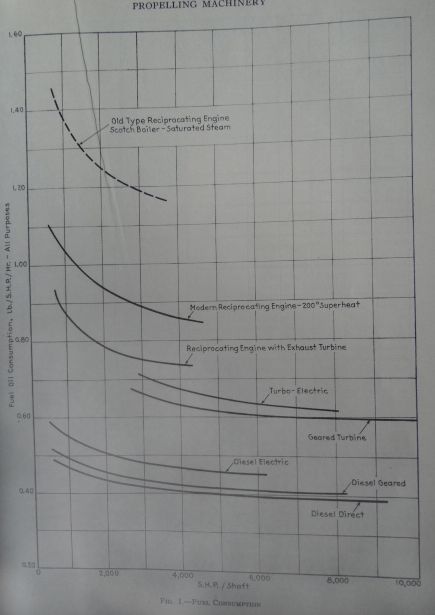Posted by Steviegtr on 22/07/2021 23:15:38:
Lord Bamford did explain that the Electric battery idea is dead in the water. Not enough rare minerals to make it work worldwide. He also said it all began with the Elton Musk thing…
…
The moral here is, did the oil company go bust. No The oil companies will be the people who will develop any product that will eventually rein in the motor industry. Pistons at dawn.
Steve.
With respect Steve, Lord Bamford said no such thing, or anything like 'Batteries are dead in the water'. No need to believe me, watch the video! See the tag line 'Is hydrogen, rather than electric, the future for big-engined machinery?'
Lord Bamford is clear about the context, for instance he refers to: 'Issues with our type of product', and the requirement being 'a different thing from saloon cars'. The video has a nice graph showing where JCB think the boundary between batteries and Hydrogen IC is. Basically, batteries are OK for small earthmovers used for up to 6 hours at a time, but no good for heavy earth movers run round the clock, or the kind of American truck supplied with two drivers who work shifts in order to cover more than 1000 miles per day. The video also explains batteries are good for urban and short range motoring. He makes a good point about the cost of converting to electric cars : at the moment they are expensive and there is no second-hand market pushing prices down. However, he didn't explain (why should he) that the total cost of ownership of electric cars is already lower than the total cost of owning an IC vehicle. It's because electric vehicles are cheaper per mile and they require much less maintenance. From now on, electric cars will get cheaper, while IC cars get more expensive.
Most arguments in favour of petrol and diesel assume the price of oil at the pump will stay the same forever. Oh dear, it's not! There are about 30 million cars on the road in the UK; the Chinese market for new cars is about 25 million per year : lots of new customers are chasing a dwindling natural resource, so guess what will happen to the price.
I don't expect IC engines to be replaced by a single technology; there's no reason why it should. At the moment batteries look to be the best bet for commuter motoring, but they're not suitable for heavy duty. Storing Hydrogen is likely too dangerous for domestic use, but the risk could be managed in a commercial vehicle, in which case no objection to Hydrogen IC.
Matching different technologies to the job in hand has always been a feature of engineering. Imagine it's 1944 and we're considering how best to power a ship. Choices are reciprocating steam with saturated or superheated steam, reciprocating steam with a turbine driven by the exhaust, turbo-electric, geared turbine, diesel electric, geared diesel, and direct diesel. The debate is interesting as a man-in-pub discussion, but in 1944 the professional engineer had to carefully balance several factors. The speed and size of the ship, reliability, maintenance and personnel costs, fuel cost & availability, fuel efficiency, weight, space, relative cost, vibration and noise, the effect on powering auxiliaries and fuel consumption at fractional powers. (Gas turbines have the best fuel efficiency provided they are run flat out but efficiency at reduced power is dreadful. Good choice for cruising, rubbish for stop-start work.)
This graph, which is one of several ways of comparing maritime choices in 1944, illustrates the need to look closely at all the alternatives:

For example, ignoring poor fuel efficiency, in 1944 saturated steam was a poor choice for a big ship requiring more than 5000SHP because reciprocating steam maxes out below that power.. Another graph shows reciprocating engines are also overweight while a third shows they're high maintenance. But they were reliable, burned widely available cheap coal, and are good at stop-start work. However, in 1944 they were on the way out because super-heated engines were cheaper to run overall, and their clock was ticking because diesel is even better. However, the rise of Diesel depended on improving the purity of cheap diesel oil, which the chemists did during the 1950s.
At the moment diesel is king at sea. But it too will have to change… Technology and engineering never stand still.
As to the power of big oil, it's fading. Quite interesting that they are now being sued across the US because documentary evidence has emerged that oil companies knew decades ago that their product is damaging, and they've persistently lied about it.
Good for JCB I say – we need ways of powering large machines without burning carbon. The engine part of the problem is relatively easy and the difficulties weren't tackled by the video: how exactly do you distribute large quantities of Hydrogen safely? An unfortunate feature of Hydrogen is that small leaks form explosive mixes; wouldn't be difficult to demolish a garage if the car sprang a tiny leak!
Dave
Edited By SillyOldDuffer on 23/07/2021 11:06:26
Paul Kemp.





